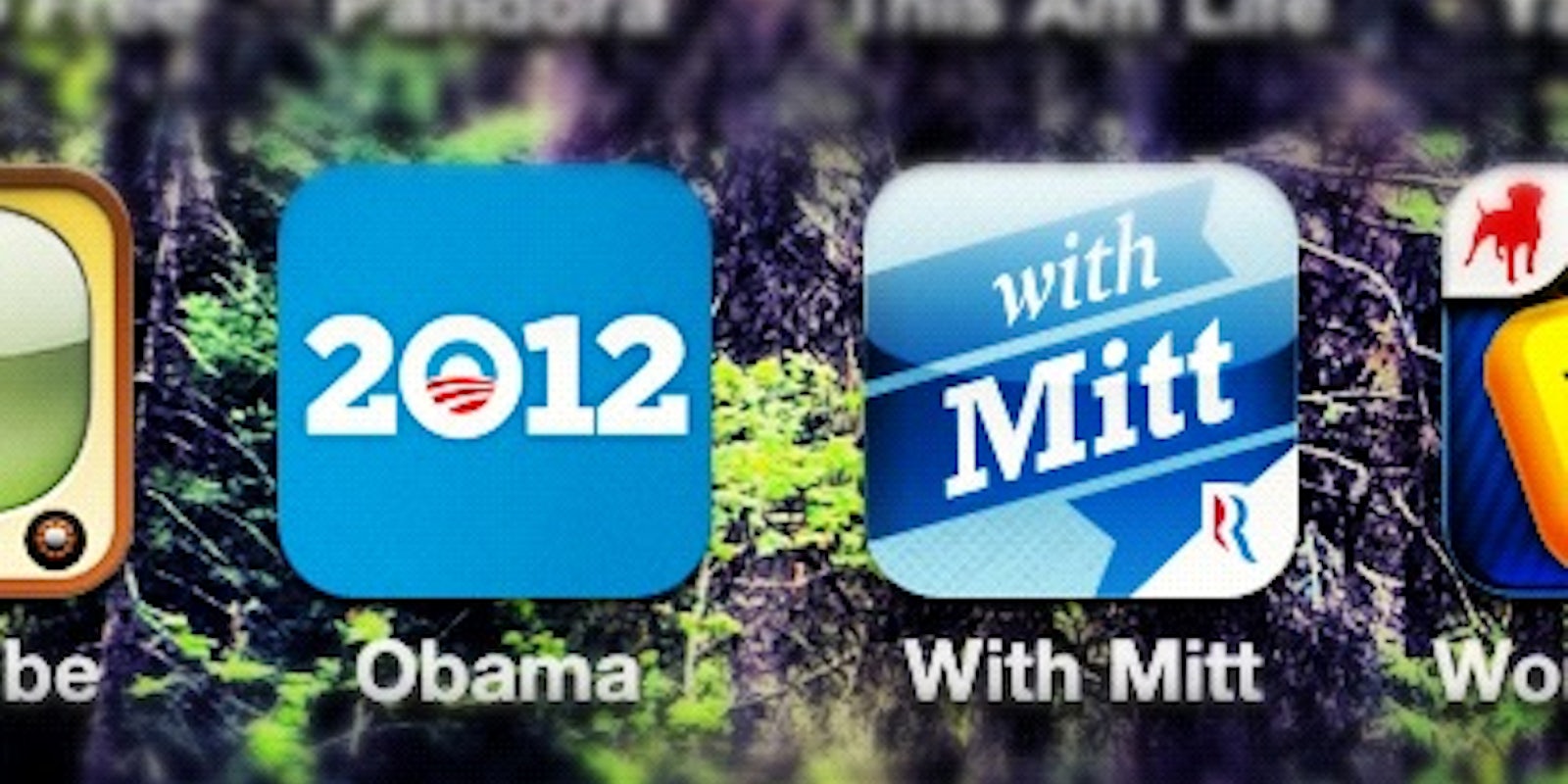“Amercia” may prove to be Mitt Romney’s “oops” moment.
It’s more than an accidental typo on an iPhone application. It’s a glaring distinction between his social-media presence and that of his rival, President Barack Obama.
From the beginning, Obama has ruled the political world of social media. He has the most fans, followers or likes on Facebook, on Twitter, Google+, YouTube, and even Myspace (although he hasn’t used it in a year, like the rest of us). The Obama 2012 app came out late last year and provides latest news about the campaign, photos and video, event listings and other information about the 2012 campaign. It also welcomes input from its users, as seen in the welcome message you receive soon after downloading it.
The fact that the Obama camp has already endorsed an app reinforces one of the president’s stronger overall selling points. Last week, he told government agencies that he wants all of them to establish apps in the next year:
“Americans deserve a government that works for them anytime, anywhere, and on any device.”
Let’s face it. The problems with Romney’s official app, With Mitt, didn’t end with “Amercia.” The biggest problem is it doesn’t do much, other than add filters to pictures (“Mittsagram” as one Democrat called it). And it doesn’t even include cool filters and frames, like Rise, Amaro or Hefe (whatever that is).
Yet, while there is a clear winner in the race now, there’s plenty of room to grow in the world of campaign apps.
Campaign apps can do some of the same things other social media sites can do (show video, tweets, and other messages), but they currently lack two key aspects to put it on the same level as those other platforms: interaction and numbers.
Neither candidate’s app let people see what others are saying—at least not unedited. (The Obama one will occasionally post a “news” story about what some people are saying, but it’s often nothing more than a press release.) The apps also lack a way to measure a candidate’s success, like you would with views on YouTube, likes on Facebook and retweets on Twitter.
Regardless of these current shortfalls, the potential is there for apps to play a big role in future elections. In time, a campaign will explore all of the power of an app, and there’s a good chance Obama’s camp could lead the way.
The apps arms race has only just begun.


